UPDATE | May 20, 2021
If you are not a Japanese national and want to come to Japan to study, you need to obtain a status of residence. Therefore, I will explain what kind of status of residence you have, and the flow from application to entry and issuance of a residence card.
INDEX
在留資格は外国人が日本に滞在し活動するために必要な資格(許可)です。同じようなものにビザ(査証)がありますが、この2つは別ものです。
So what's the difference between a status of residence and a visa? That's when you need it. The status of residence allows you to stay and work in Japan after entering Japan, but before that, when you enter Japan, the passport (passport) of a foreign national who wishes to come to Japan is required. It is issued by the Japanese embassy or consulate in each country as a recommendation that it is valid and that there is no problem in entering Japan. Obtain your status of residence first and then apply for a visa.
The content of activities in Japan is determined by the type of status of residence. Here is a list of status of residence that allows you to work as of September 2020.
 Status of residence permitted to work (with activity restrictions) * Click to display PDF
Status of residence permitted to work (with activity restrictions) * Click to display PDF
[PR]
The status of residence, "Specific Activities," allows the Minister of Justice to carry out activities specifically designated for individual foreigners. For example, diplomat domestic servants, working holidays, and candidates for foreign nurses and care workers based on economic partnership agreements. The period of stay is one of five years, three years, one year, June, March, or a period individually designated by the Minister of Justice (within a range not exceeding five years).
The status of residence "long-term care" is intended for persons who are qualified as long-term care workers, and can engage in long-term care or long-term care guidance. The period of stay is 5 years, 3 years, 1 year, or March.
The "skills" of the status of residence allow you to engage in work that requires skilled skills in a special field of industry. For example, foreign cooks, sports instructors, aircraft pilots, precious metal processors, etc. The period of stay is 5 years, 3 years, 1 year, or March.
「在留資格の「永住」は、法務大臣から永住を認められた人に与えられ、在留期間は無期限です。
The status of residence, "Settlement," is given to those who are granted residence by the Minister of Justice by designating a certain period of stay in consideration of special reasons. For example, resettled refugees, resettled Japanese, and Japanese remaining in China. Applicable. The period of stay is one of five years, three years, one year, June, or a period individually designated by the Minister of Justice (within a range not exceeding five years).
The status of residence "College Student" applies to students and students studying at Japanese universities, high schools, junior high schools, elementary schools, etc. The period of stay is March, 4 years, March 3 years, 3 years, March 2 years, 2 years, March 1 year, 1 year, June, or March.
The status of residence "family stay" is given to spouses and children supported by foreign residents, and the period of stay is 5 years, 4 years March, 4 years, 3 years March, 3 years, 2 years 3 years. Month, 2 years, March 1 year, 1 year, June, March.
The status of residence "Business / Management" corresponds to the manager or manager of a company who can engage in the management and management of trade and other businesses. The period of stay is 5 years, 3 years, 1 year, June, April or March.
The status of residence "training" can be accepted by public and private institutions to acquire skills, etc. (* Excluding "skill training" and "study abroad"). The period of stay is one year, June, or March.
"Medical care" with a status of residence means that a person with legal qualifications can engage in medical work related to medical care, and includes doctors, dentists, and nurses. The period of stay is 5 years, 3 years, 1 year, or March.
The status of residence "Technical Intern Training" is applicable to technical intern trainees who can take training based on the certified technical intern training plan and engage in work related to skills. There are three types, No. 1, No. 2, and No. 3, but the period of stay is different. No. 1 is the period individually designated by the Minister of Justice (within a range not exceeding one year), and No. 2 and No. 3 are individually designated by the Minister of Justice. It is the specified period (within the range not exceeding 2 years).
The Certificate of Eligibility certifies the content of activities conducted in Japan and is issued by the Ministry of Justice. This is a document that is required for foreign nationals staying in Japan for a medium to long term together with a "passport" and "visa" when landing in Japan.
In order to enter Japan smoothly, please apply and obtain it in advance.
To obtain a Certificate of Eligibility, the person or agent who intends to land in Japan submits the necessary documents to the local immigration office that has jurisdiction over the place of residence or the location of the host organization. You can get it by doing.
There is no immigration fee for the application, and it takes 1 to 3 months from the application for issuance to the acquisition.
Regardless of the type of status of residence, the following three documents are required in all cases.
(1) Application for issuance of Certificate of Eligibility
There are 17 types of application forms in total, such as "Highly Professional No. 1 A", "Professor / Education", and "Art / Cultural Activities", corresponding to the activities planned to be conducted in Japan. Please download the applicable item from the Ministry of Justice website.
(2) Photo
Please prepare a clear one with no hat and no background, which was taken within 3 months before the application.
(3) Reply envelope
Write the address clearly and attach a 404 yen stamp for registered mail.
In addition, it is necessary to submit materials according to the content of activities in Japan. The required documents vary depending on the status of residence you are applying for, so the Immigration Bureau of Japan website "Application for Certificate of Residence" (http://www.moj.go.jp/isa/applications/procedures/16-1.html) To check.
We will introduce how to write the application for issuance of the Certificate of Eligibility with an example.
Here, let's take an example of "study abroad" documents for people who want to study in Japan (international students, Japanese language school students, etc.).
There are 5 pages in total, 1 to 3 for creating applicants, 1 and 2 for creating affiliated institutions, etc. The 2 pages for creating the institution, etc. are created by the school, so I will introduce how to write the 3 pages for creating the applicant, etc.
There are two points to note when filling out.
(1) Write in Japanese or English using a black ballpoint pen.
(2) When making corrections, erase the wrong part with a double line and put a correction mark or sign it. Do not use correction fluid.
[For creating applicants, etc. 1]
 Entry example for applicant 1 * Click to display PDF
Entry example for applicant 1 * Click to display PDF
* For the sake of clarity, the entry example is in red.
1. Nationality / Region
Please fill in the area.
2. Date of birth
Please fill in the year.
3. Name
Please fill in the alphabet exactly as it appears on your passport.
4. Gender
Please circle either one.
5. Place of birth
Please enter the country name, state (province) name, and city name.
Example: Chinese → China ○○ Province ○○ City (Prefecture) ○○
For other countries → Country, city
6. Presence or absence of spouse
Please circle either one.
7. Occupation
Please enter the occupation when you created the application form.
8. Place of residence in your home country
Enter your home Street address Please enter not only the country name but also the state (province) name and city name here.
9. Contact information in Japan
If you would like to apply on behalf of the school, please enter the school's contact information.
10. Passport
Enter the currently valid passport number and expiration date. If you are applying for a passport in your country at the time of application, please write "Passport is being applied" in place of (1) number.
11. Purpose of entry
Click the □ of the status of residence you are applying for to select it. P Select "Study Abroad".
12. Scheduled date of entry
Please enter the expected date of entry. You don't have to enter the country on the date you enter here, as you don't know when the results will come out.
13. Port to land
Please enter the name of the airport you plan to enter.
14. Planned stay
Please indicate how long you plan to stay in Japan.
15. With or without companions
When entering Japan, please circle Yes if you have a companion, and nothing if you do not.
16. Visa application site
Enter where to apply for a visa in your country. Please enter the name of the city in your country where the Japanese Embassy is located.
17. Past immigration history
If you have visited Japan in the past, please circle it and indicate how many times you have visited Japan and the date of your most recent arrival and departure. Please refer to the immigration stamp on your passport and the stub of your ticket, and make sure you do not make a mistake on the date.
If you have never visited Japan in the past, circle nothing.
18. Past status of residence certificate issuance application history
If you have applied for a Certificate of Eligibility in the past, please circle it and enter the number of times you applied for it and the number of times it was not issued.
If you have never applied for it in the past, circle it.
19. Have you been punished for crimes?
Not only in Japan, but also in your own country, if you are prosecuted and tried in court and the crime is confirmed (convicted), you will be marked with a circle, and the details of what kind of crime you have committed will be concrete. Please fill in.
If you have never sinned, circle nothing.
20. Whether or not to leave the country by deportation or departure order
If you have visited Japan in the past and have departed due to the reason for deportation and Article 24 of the Immigration Control and Refuge, which stipulates the person subject to the departure order, circle the number and indicate the number of times and the latest departure date. Please fill in.
If not, circle nothing.
21. Relatives and cohabitants in Japan
If you have relatives in Japan, please circle them and fill in the necessary information such as your relationship (grandparents, parents, spouse, children, siblings, etc.) and your name. If you live with a friend who shares a room, or if you have a partner who lives with you, enter it.
If you do not have any relatives or cohabitants, please circle nothing and enter "None" in the field below.
[For creating applicants, etc. 2]
 Entry example for applicants 2 * Click to display PDF
Entry example for applicants 2 * Click to display PDF
22. Where to go to school
Please fill in the information of the school you plan to attend in Japan.
23. Years of study (elementary school-final academic background)
Please enter the number of years of study in your country, from elementary school to final academic background.
24. Final academic background
Please enter your final academic background in your country.
25. Japanese ability
Fill in the information that can prove your Japanese ability. Click the applicable □ to select it and fill in the required items.
26. Japanese learning history
If you plan to be educated in high school, you will need to fill it out.
27. How to pay the accommodation fee, etc.
I will write about how to secure the accommodation fee while I am in Japan. Click the applicable □ to select it, and enter all amounts in Japanese Yen.
(1) Enter the monthly average amount in the payment method and monthly average payment amount.
(2) Expense supporter
① Name ... Enter in English or Kanji according to the certificate
② Street address... Enter in English without abbreviation
③ Occupation (name of work place) ... Enter the name of work place accurately according to the signature document.
④ Annual income ... Calculated based on the cashing rate based on the issue date stated on the income certificate and entered in Japanese yen.
* If the expense supporter is unemployed and cannot write the annual income, correct the annual income to the deposit balance, calculate based on the conversion rate based on the issue date of the deposit balance certificate, and enter the deposit balance in Japanese yen.
[For creating applicants, etc. 3]
 Entry example for applicants 3 * Click to display PDF
Entry example for applicants 3 * Click to display PDF
(3) Relationship with applicant
Click the applicable □ to select it.
(4) Scholarship payment institution
Click the applicable □ to select it.
28. Schedule after graduation
Click the applicable □ to select only one.
You do not need to fill in after 29.
The expiration date of the Certificate of Eligibility is usually "3 months". Let's enter Japan as soon as you receive the grant.
However, as of January 26, 2021, due to the influence of the new coronavirus infection, those issued after October 1, 2019 will be treated as follows depending on the date of issue. It is announced by the Immigration Bureau of Japan, Ministry of Justice.
(1) Created from October 1st to December 31st, 2019
→ Until April 30, 2021
(2) Created from January 1, 2020 to January 30, 2021
→ Until July 31, 2021
(3) Created from January 31, 2021
→ Valid for "6 months" from the date of creation
Please be sure to check the latest information as it may change depending on the situation in the future.
What kind of procedure will be required after the Certificate of Eligibility is issued?
Here, we will explain the procedures required from the issuance of the Certificate of Eligibility to the time you enter Japan.
If you have permission to certify your status of residence, the "Certificate of Status of Residence" will be enclosed in the reply envelope you submitted at the time of application and will be mailed to you or your agent.
If you are in a foreign country and have a Japanese agent apply, you will need to have the original sent to you. This document is required for entry into Japan, so please be sure to send it by EMS, FedEx, DHL, etc. so that it will not be lost.
We will prepare the necessary documents such as the certificate of residence status, photo and visa application form, and submit them to the diplomatic mission abroad such as the Japanese embassy to apply for the issuance of a visa.
The Certificate of Eligibility has an expiration date, so be sure to inquire the necessary documents at the diplomatic mission abroad before applying to ensure that the procedure proceeds.
It may take several days at the earliest, and one to two weeks for the visa to be issued, so please apply with plenty of time.
When the visa is issued, the passport you submitted at the time of application will be pasted and returned.
Passport, visa, status of residence certificate. I have all the 3 documents needed to enter Japan and stay after 90 days. Get ready to travel to Japan in time for your documents to expire.
We will prepare the necessary documents such as the certificate of residence status, photo and visa application form, and submit them to the diplomatic mission abroad such as the Japanese embassy to apply for the issuance of a visa.
Present your passport, visa, and Certificate of Eligibility at the airport where you landed in Japan. At this time, a residence card will be issued to foreigners residing in Japan for the medium to long term.
The residence card acts as an ID card while you are in Japan, and you are required to carry it with you at all times.
If your residence card is not issued at the airport and your passport says "Issuance of your residence card at a later date", bring your passport and submit a move-in notification at the municipal office within 14 days of deciding where to live. please.
Foreign nationals who want to stay in Japan for more than 90 days to study or work must first obtain a Certificate of Eligibility. Prepare the necessary documents and apply for a Certificate of Eligibility according to the purpose of your stay in Japan.
Once you have been issued a Certificate of Eligibility, please apply for a visa.
Present your passport, visa, and Certificate of Eligibility when you enter Japan. At the airport where you landed, you will be issued a "Residence Card" that will be your ID at the time of your stay.

アクセス日本留学Editorial Department.アクセス日本留学" where foreign students can request materials to find Japanese schools, and hold "advancement information sessions for foreign students".
[PR]
[PR]